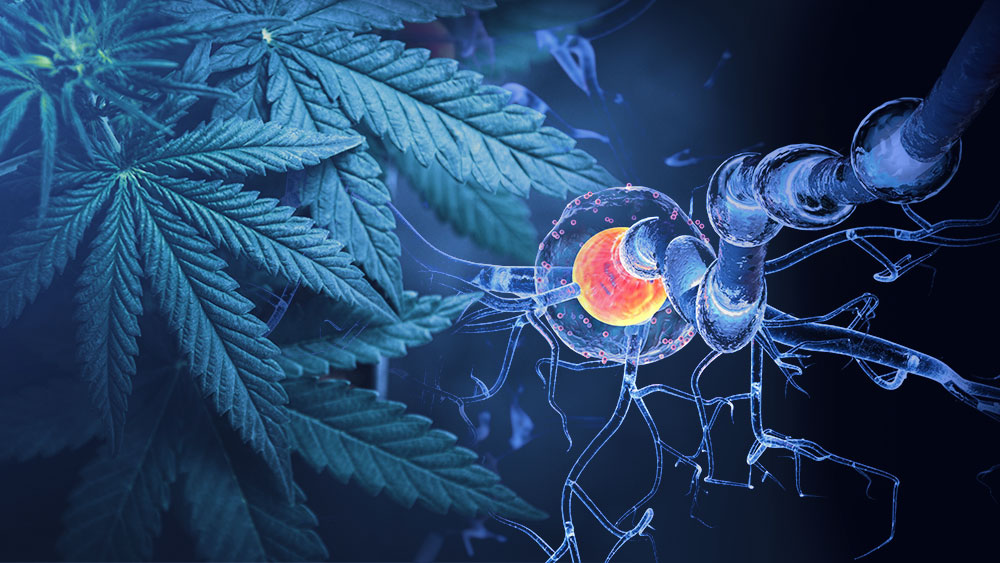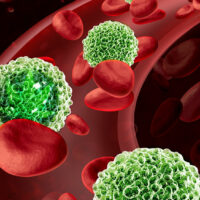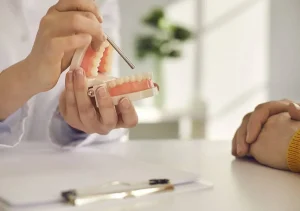Over 2.3 million people around the world live with multiple sclerosis (MS). In this article, we’ll be diving into research to find out if cannabis can help.
According to MS Society of Canada, 1 in every 385 Canadians lives with this condition. As it’s one of the most debilitating conditions, living with multiple sclerosis is a real battle.
For patients who don’t respond well to conventional MS methods, cannabis treatment seems like a very reasonable choice. But what does science say?
What is multiple sclerosis?
Multiple Sclerosis (otherwise known as MS) is an unpredictable, progressive neurological autoimmune disease that gradually damages the nerves of the spinal cord and brain, along with the entire immune system.
Scientists and medical experts have been trying to solve the puzzle of MS for decades, and they still can’t say with certainty what is the exact cause of it. However, some factors have been identified as potential causes of MS.
So, what do we know about multiple sclerosis?
MS is an autoimmune disease in which the immune system attacks myelin—a fatty substance that envelops nerve cells and fibers, allowing information exchange.
When there isn’t enough myelin, the brain finds it difficult to communicate with the rest of the body.
This myelin deficiency disease gradually deteriorates the nerve cells and eventually damages them permanently. (1)
What are the symptoms of MS?
Multiple sclerosis is a disease that affects everyone differently. The wide range of symptoms usually affects the mind, the senses and the entire body. Some of the early signs include:
- Walking, balance and coordination issues
- Muscle spasms, pain, fatigue and weakness
- Numbness and tingling
- Problems with vision
- Cognitive issues
- Bladder issues
Since little is known about the exact cause of this condition, and a cure hasn’t been found yet, treatment options are limited—but they do exist.
These therapies usually include corticosteroids or plasma exchange, but they only slow down the progression of MS. Unfortunately, not all patients respond to these treatments well, and some don’t respond at all. (3)
Scientific research on cannabis and MS
Multiple sclerosis qualifies one for getting access to medical cannabis in some states in the US.
In Canada, patients suffering from MS are eligible for getting a medical cannabis prescription.
Research on using cannabis to treat general symptoms of MS
In 2005, a group of researchers looked into the effectiveness and long-term safety of tetrahydrocannabinol for MS. During a 15-week period, 630 patients with a stable form of MS were given THC or placebo.
At the end of the treatment, patients who were taking THC reported around twice as much relief from general symptoms than those who were given placebo. (4)
Research on using cannabis to treat muscle spasms
Muscle spasticity and stiffness are one of the most prevalent issues MS patients have to deal with. Gaining muscle control with cannabis seems attainable for some patients.
A comprehensive systematic review of 34 studies (conducted over a 50-year period) from 2014 on cannabis and MS concluded that oral cannabis extracts are very effective in relieving muscle spasms, and possibly effective in treating other symptoms as well. (5)
Research on using cannabis to treat bladder issues caused by MS
In a 2010 study, MS patients were given Sativex (whole-plant formulation with 1:1 THC to CBD ratio), and placebo for 10 weeks.
Sativex had an impact on an overactive bladder in patients with MS, providing evidence of improvement in symptoms associated with bladder dysfunction. (6)
Research on using cannabis to treat pain caused by MS
Here’s one interesting research about smoking cannabis and its effects on pain caused by MS.
30 MS patients were randomly given either a joint or an identical cigarette once a day for three days. After an eleven-day break, participants switched groups.
They reported that the treatment with cannabis significantly lessened pain, and was superior to placebo in symptom reduction. Naturally, the authors of this trial study point out that more research is needed. (7)
These findings show us that cannabis can’t cure MS, but that is has great potential at reliving its exhausting and persistent symptoms.
People living with MS frequently battle several accompanying conditions: depression, seizures, lack of appetite are all very common.
These disorders are successfully treated with cannabis by themselves, with either isolated compounds or whole-plant formulations.
Best cannabis strains for multiple sclerosis
If you would like to give cannabis a try to diminish the symptoms of MS, here are just a few strains to help you kick off your journey.
If you’re having trouble finding these strains, ask you local budtender for help (strains are often sold under different names), and if they don’t have it, ask for a recommendation for a similar strain.
If you live in Canada, you can use our Strainblazer to find strains currently sold by ACMPR licensed producers.
Sour Diesel
A very popular sativa-dominant strain for both medical and recreational users, Sour Diesel is famous for its ability to crush pain and fatigue. It’s great for relaxing both the brain and the body, but also provides enough energy to get going through the day.
Critical Mass
One of the best-known indica strains, Critical Mass is recommended for night-time use. The reason is simple: It makes users sleepy and sluggish. According to people who use it medically, this strain works miracles when it comes to pain.
Nebula II CBD
This sativa-dominant strain with a 1:1 THC to CBD ratio is perfect for managing MS symptoms. Nebula is a good choice for daytime use: It brings forth the focus and energy. Also, it abolishes pain, depression and fatigue.
AK-47
AK-47 is known for being a potent hybrid strain, mostly recommended for experienced users but very effective in killing pain and muscle spasms.
Strawberry Cough
A favorite among medical consumers, Strawberry Cough boost energy levels and confidence, while relieving patients from all sorts of symptoms, including pain, spasms and fatigue.
References:
- Wootla B, Eriguchi M, Rodriguez M; Is Multiple Sclerosis an Autoimmune Disease?; Autoimmune diseases; May 2012; 2012: 969657
- Ascherio A, Munger KL; Environmental risk factors for multiple sclerosis, Part II: Noninfectious factors; June 2007; Annals of Neurology; 61 (6): 504–513
- National Collaborating Centre for Chronic Conditions (UK); Multiple Sclerosis: National Clinical Guideline for Diagnosis and Management in Primary and Secondary Care; London: Royal College of Physicians (UK); 2004.
- Zajicek JP, Sanders HP, Wright DE, Vickery PJ, Ingram WM, Reilly SM, Nunn AJ, Teare LJ, Fox PJ, Thompson AJ; Cannabinoids in multiple sclerosis (CAMS) study: safety and efficacy data for 12 months follow up; Journal of Neurology, Neurosurgery and Psychiatry; December 2005; 76(12):1664-1669
- Koppel BS, Brust JC, Fife T, Bronstein J, Youssof S, Gronseth G, Gloss D; Systematic review: efficacy and safety of medical marijuana in selected neurologic disorders: report of the Guideline Development Subcommittee of the American Academy of Neurology; Neurology; April 2014; 82(17):1556-1563
- Kavia RB, De Ridder D, Constantinescu CS, Stott CG, Fowler CJ; Randomized controlled trial of Sativex to treat detrusor overactivity in multiple sclerosis; Multiple Sclerosis; November 2010; 16(11):1349-1359
- Corey-Bloom J, Wolfson T, Gamst A, Jin S, Marcotte TD, Bentley H, Gouaux B; Smoked cannabis for spasticity in multiple sclerosis: a randomized, placebo-controlled trial; Canadian Medical Association Journal; July 2012; 184(10):1143-1150







John Neale May 4, 2019 at 11:45 pm
Great article! Keep up the good work!
Helena May 20, 2019 at 1:28 pm
Thanks John!
Kevin Murphy May 9, 2019 at 3:44 am
Information-packed article. What a great read!
Finlay Cedar June 1, 2019 at 7:00 am
Been diagnosed with multiple sclerosis in 2015, and I was a woman of 50. They put me on Rebif which I took until 2017 and was switched to Copaxone. I had two relapses on Rebif, none so far on Copaxone. I do notice my balance was getting worse, and my memory, as well as erectile dysfunction and spasms’ had no choice to sick for other solution and I was introduce to totalcureherbsfoundation c om which I purchase the MS herbal formula from the foundation, the herbal supplement has effectively get rid of my multiple sclerosis and reversed all symptoms.
Cindy W Edwards June 17, 2019 at 1:25 pm
I was diagnosed with Multiple Sclerosis (MS) in October 2012, at the age of 44. I woke up one morning with numbness in my lower back and legs, I couldn't feel my feet touching the floor. I saw my doctor and had an MRI to see if I had a disc problem, it was negative and she told me she feared MS. I was sent to a neurologist, had two more MRIs, and was told that night that I have four lesions on my spine MS. I tried every shots available but nothing worked. In 2015, my neurologist and I decided to go with natural treatment and was introduced to Organic Herbal Clinic natural organic MS Herbal formula, i had a total decline of symptoms with this treatment, the numbness, terrible back pains, stiffness, body weakness, double vision, depression and others has subsided. Visit Organic Herbal Clinic official website www. organicherbalclinic. com This treatment is a breakthrough for all suffering from Multiple sclerosis, i am strong again!